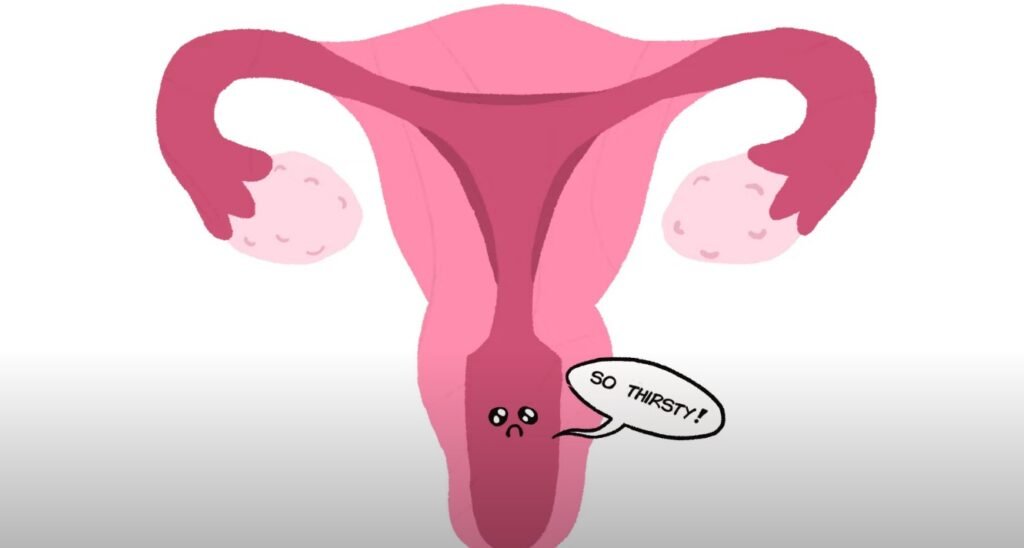The menopause, often referred to as a woman’s change of life, is a natural event that occurs typically in the mid to late forties. It marks the end of the female reproductive period, which commences at adolescence in the early teens.
Dispelling Misconceptions
Does Menopause Equal Aging?
Many women perceive menopause as a sign of aging and a decline in physical vitality. However, this is far from accurate. While menopause signals the end of fertility, it doesn’t diminish a woman’s physical capacity or sexual vigor. It’s merely a transition to a new phase of life.
Does Menopause End Sexual Pleasure?
Contrary to popular belief, menopause doesn’t bring an end to sexual pleasure. While hormonal changes may occur, impacting libido and vaginal lubrication, intimacy and sexual enjoyment can still be fulfilling during and after menopause.
Stages of Menopause Treatment option
- Perimenopause: Hormonal shifts begin before menopause, often in the mid-40s, leading to irregular periods and symptoms like hot flashes.
- Menopause: Defined by 12 months without menstruation. Symptoms like hot flashes, mood changes, and vaginal dryness may persist.
- Postmenopause: The phase following menopause where symptoms typically diminish, but other health issues such as osteoporosis may arise.
Symptoms of Menopause

During menopause, hormonal fluctuations affect various endocrine glands, including the gonads, thyroid, and pituitary gland. While some women experience the menopausal transition without significant symptoms, others may encounter distressing physical, emotional, and nervous manifestations. Common symptoms include:
- Hot flashes
- Night sweats
- Nervous tension
- Menstrual disturbances
- Insomnia
- Diminished interest in sex
- Irritability
- Depression
- Chilly feelings
- Fatigue
- Palpitation
- Dizziness
- Headaches
- Numbness
Complications
Menopause can be associated with various health changes, including:
- Vulvovaginal atrophy
- Osteoporosis
- Mood disorders
- Urinary incontinence
- Heart disease
- Weight gain
The severity of symptoms varies among individuals and can be influenced by factors such as overall health and medical history.
Understanding the Causes
The symptoms associated with menopause stem from a decline in estrogen production by the ovaries, the primary female hormone. Disruptions in ovarian function due to factors like surgery, radiation therapy, or hormonal imbalances can exacerbate menopausal symptoms.

Effective Treatments and Management Strategies
While menopause is inevitable, its impact can be mitigated through appropriate nutritional interventions, supplements, and a positive mindset. Here are some strategies for managing menopausal symptoms effectively:
Nutritional Program:
A balanced diet rich in essential nutrients is crucial for managing menopausal symptoms. Emphasize foods high in:
- Protein
- Calcium
- Magnesium
- Vitamins D, B, and E
- Pantothenic acid
Supplements:
Supplements can complement dietary intake and alleviate menopausal symptoms. Consider the following supplements:
- Vitamin D: 1,000 units daily
- Magnesium: 500 milligrams daily
- Calcium: 2 grams daily
- Vitamin E: 50 to 100 units daily
Real Natural Treatment:
Treatment
- Although menopause cannot be avoided, it can be postponed for as long as 10 to 15 years and it can be made a smooth affair when it comes, with a appropriate diet, specialized supplements, and a positive outlook.
- If a woman experiences any significant menopausal symptoms, it is a clear indication that her body is toxic and requires a thorough cleansing. For this purpose, she should undergo a course of natural health-building treatment.Diet is of utmost importance in such a scheme of rament. In fact the problems at menopause are often me of the severe than that at puberty largely because the diet has yen deficient for many years prior to its onset, in many murients such as protein, calcium, magnesium, vitamins D, I B and pantothenic acid.
- The diet should be made up from three basic food groups, punely ) seeds, nuts and grains, (i) vegetables and (i) fruits.
- The emphasis should be on vitamin E-rich raw and sprouted ans and nuts, unpasteurised high quality milk and home-made notage cheese and an abundance of raw, organically grown fruits and vegetables. Plenty of freshly made juices of fruits and ngetables in season should also be included in the diet.
- All processed, refined and denatured foods, such as white agar, white flour and all articles made with them, should be completely eliminated. Take special supplements such is vitamins C, B, and pantothenic acid, which have a specific property of stimulating the body’s own production of estrogen or enhancing the effect of the existing estrogen. The absence of ovarian hormones after menopause might lead to a significant calcium shortage. For this reason, a larger than usual intake of calcium may help greatly. Vitamins D and F are also essential for assimilation of calcium. Any woman having difficulty at this time should supplement her daily diet with 1,000 units of natural vitamin D, 500 milligrams of magnesium and two grams of calcium daily, which one quart of milk can provide.
- The amount of vitamin E that is needed increases 10–50 times during the menopause. Hot flashes, night sweats and other symptoms of menopause often disappear when 50 to 100 units of vitamin E are taken daily. The symptoms recur quickly if the vitamin is discontinued.Of late, it has become popular to take estrogen to prevent or postpone
- therapy is apparently successful and will, in many cases, help the patient to feel and act younger, it cannot be recommended in all cases because of its carcinogenic effect. If, however, estrogen therapy is undertaken, it should never be administered at the same time as vitamin E therapy. It is best to have vitamin E and estrogen several hours apart.
- For menopausal issues, beet juice has been reported to be highly beneficial.
- It ought to be taken three times a day in little doses of 60 to 90 ml at a time. It has proved much more permanently helpful than the degenerative effects of drugs or synthetic hormones.
- Carrot seeds have also been found valuable in menopausal tension. A teaspoonful of the seeds should be boiled in a glassful of cow’s milk for about 10 minutes and taken daily as a medicine in this condition.
- Plenty of outdoor exercise, such as walking, jogging, swimming, horse-riding or cycling, is imperative to postpone menopause. Other helpful measures in this direction are avoiding mental and emotional stress and worries, especially worry about growing old, sufficient sleep and relaxation and following all general rules of maintaining a high level of health.
- The healthier a woman is, the fewer menopausal symptoms she will experience.
- Menopause can be made a pleasant affair by building bodily health and a sane mental outlook A woman has been somewhat of a slave to her female glands from adolescence to menopause. At specified intervals she was inconvenienced by her menstrual periods. She bore children, enduring the pain and discomfort of pregnancy. Menopause relieves her of this bondage to her femininity. She can now experience some of the happiest days of a woman’s life. A whole new life is given to her, if she is wise enough to prepare for it and accept it as such.

Exercise and Stress Management:
Engage in regular physical activity, such as walking or swimming, to promote overall well-being. Stress reduction techniques like meditation and sufficient sleep can also alleviate menopausal discomfort.

Frequently Asked Questions (FAQs)
- Can menopause be postponed?
- While menopause is inevitable, certain lifestyle factors may delay its onset.
- Are there any dietary restrictions during menopause?
- Avoid processed foods and prioritize nutrient-dense whole foods to support hormonal balance.
- Can supplements alleviate menopausal symptoms effectively?
- Yes, supplements like vitamin E and calcium have shown promising results in managing symptoms.
- Is hormone replacement therapy safe during menopause?
- Hormone replacement therapy carries risks and benefits and should be discussed with a healthcare provider.
- Can exercise help alleviate menopausal symptoms?
- Yes, regular exercise can improve mood, sleep quality, and overall physical health during menopause.
Embracing a New Phase of Life
Menopause signifies the liberation from the reproductive burdens of womanhood. It’s an opportunity for women to embrace newfound freedom and vitality. By prioritizing health and maintaining a positive outlook, menopause can indeed be a fulfilling and empowering transition.
